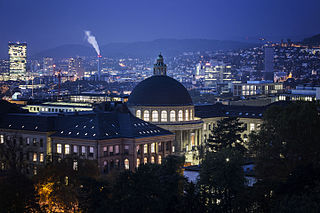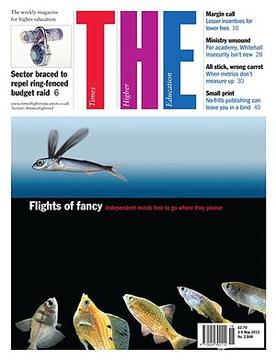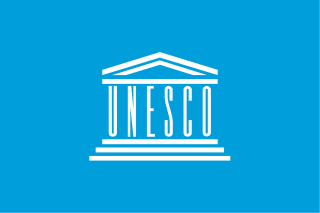Distance education, also known as distance learning, is the education of students who may not always be physically present at school, or where the learner and the teacher are separated in both time and distance. Traditionally, this usually involved correspondence courses wherein the student corresponded with the school via mail. Distance education is a technology-mediated modality and has evolved with the evolution of technologies such as video conferencing, TV, and the Internet. Today, it usually involves online education and the learning is usually mediated by some form of technology. A distance learning program can either be completely a remote learning, or a combination of both online learning and traditional offline classroom instruction. Other modalities include distance learning with complementary virtual environment or teaching in virtual environment (e-learning).

Education is the transmission of knowledge, skills, and character traits and manifests in various forms. Formal education occurs within a structured institutional framework, such as public schools, following a curriculum. Non-formal education also follows a structured approach but occurs outside the formal schooling system, while informal education entails unstructured learning through daily experiences. Formal and non-formal education are categorized into levels, including early childhood education, primary education, secondary education, and tertiary education. Other classifications focus on teaching methods, such as teacher-centered and student-centered education, and on subjects, such as science education, language education, and physical education. Additionally, the term "education" can denote the mental states and qualities of educated individuals and the academic field studying educational phenomena.

Tertiary education, also referred to as third-level, third-stage or post-secondary education, is the educational level following the completion of secondary education. The World Bank, for example, defines tertiary education as including universities as well as trade schools and colleges. Higher education is taken to include undergraduate and postgraduate education, while vocational education beyond secondary education is known as further education in the United Kingdom, or included under the category of continuing education in the United States.

International students or exchange students, also known as foreign students, are students who undertake all or part of their secondary or tertiary education in a country other than their own.

Moscow State University is a public research university in Moscow, Russia.
Education in Japan is managed by the Ministry of Education, Culture, Sports, Science and Technology (MEXT) of Japan. Education is compulsory at the elementary and lower secondary levels, although more than 95% of the students receive higher secondary education as well.
Education in China is primarily managed by the state-run public education system, which falls under the Ministry of Education. All citizens must attend school for a minimum of nine years, known as nine-year compulsory education, which is funded by the government.
College and university rankings order higher education institutions based on various criteria, with factors differing depending on the specific ranking system. These rankings can be conducted at the national or international level, assessing institutions within a single country, within a specific geographical region, or worldwide. Rankings are typically conducted by magazines, newspapers, websites, governments, or academics.

Private universities and private colleges are higher education institutions not operated, owned, or institutionally funded by governments. However, they often receive tax breaks, public student loans, and government grants. Depending on the country, private universities may be subject to government regulations. Private universities may be contrasted with public universities and national universities. Additionally, many private universities operate as nonprofit organizations.

The education system in Switzerland is very diverse, because the constitution of Switzerland delegates the authority for the school system mainly to the cantons. The Swiss constitution sets the foundations, namely that primary school is obligatory for every child and is free in state schools and that the confederation can run or support universities.

The A-level is a subject-based qualification conferred as part of the General Certificate of Education, as well as a school leaving qualification offered by the educational bodies in the United Kingdom and the educational authorities of British Crown dependencies to students completing secondary or pre-university education. They were introduced in England and Wales in 1951 to replace the Higher School Certificate. The A-level permits students to have potential access to a chosen university they applied to with UCAS points. They could be accepted into it should they meet the requirements of the university.

Times Higher Education (THE), formerly The Times Higher Education Supplement, is a British magazine reporting specifically on news and issues related to higher education.
The Association to Advance Collegiate Schools of Business (AACSB) is an American professional and accreditation organization. It was founded as the American Assembly of Collegiate Schools of Business in 1916 to provide accreditation to business schools. AACSB is considered as one of the triple accreditation.

The United Nations Educational, Scientific and Cultural Organization is a specialized agency of the United Nations (UN) with the aim of promoting world peace and security through international cooperation in education, arts, sciences and culture. It has 194 member states and 12 associate members, as well as partners in the non-governmental, intergovernmental and private sector. Headquartered in Paris, France, UNESCO has 53 regional field offices and 199 national commissions.

The Times Higher Education World University Rankings, often referred to as the THE Rankings, is the annual publication of university rankings by the Times Higher Education magazine. The publisher had collaborated with Quacquarelli Symonds (QS) to publish the joint THE-QS World University Rankings from 2004 to 2009 before it turned to Thomson Reuters for a new ranking system from 2010 to 2013. In 2014, the magazine signed an agreement with Elsevier to provide it with the data used in compiling its annual rankings.
The QS World University Rankings is a portfolio of comparative college and university rankings compiled by Quacquarelli Symonds, a higher education analytics firm. Its first and earliest edition was published in collaboration with Times Higher Education (THE) magazine as Times Higher Education–QS World University Rankings, inaugurated in 2004 to provide an independent source of comparative data about university performance. In 2009, the two organizations parted ways to produce independent university rankings, the QS World University Rankings and THE World University Rankings.

The Ministry of Education (MoE) is a ministry of the Government of India, responsible for the implementation of the National Policy on Education. The ministry is further divided into two departments: the Department of School Education and Literacy, which deals with primary, secondary and higher secondary education, adult education and literacy, and the Department of Higher Education, which deals with university level education, technical education, scholarships, etc.
Aquaculture in Madagascar started to take off in the 1980s. The industry includes the cultivation of sea cucumbers, seaweed, fish and shrimp and is being used to stimulate the country's economy, increase the wages of fishermen and women, and improve the regions ocean water quality. Coastal regions of Madagascar are reliant on the Indian Ocean's marine resources as a source of food, income, and cultural identity.
A high school diploma is a diploma awarded upon graduation of high school. A high school diploma is awarded after completion of courses of studies lasting four years, typically from grade 9 to grade 12. It is the school leaving qualification in the United States and Canada.












